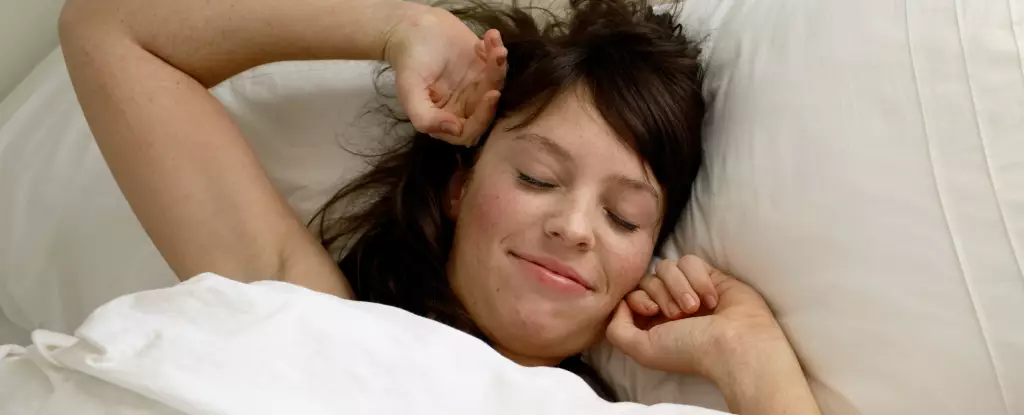The enigmatic realm of sleep has long fascinated scientists and thinkers, leading notable figures like John Steinbeck to proclaim the mysterious powers sleep has in solving dilemmas. Steinbeck’s assertion that “a problem difficult at night is resolved in the morning” captures the essence of how sleep enables clarity and creative insight. As contemporary research delves into the intricate workings of the subconscious mind during slumber, an encouraging correlation between quality sleep and enhanced decision-making has emerged. This article explores how sleep facilitates problem-solving and promotes creativity, all bolstered by recent scientific studies.
The Science Behind Sleep and Decision-Making
A groundbreaking 2024 study conducted by a team at Duke University revealed insights into the mechanics of decision-making post-sleep. Participants engaged in a garage-sale simulation where they sifted through virtual goods, with most items lacking significant value. When pressured to select a box quickly, participants made decisions heavily influenced by the first items they encountered, neglecting the overall contents. However, after a night’s sleep, the same individuals demonstrated a marked ability to make rational choices, free from the bias of initial impressions. This study emphasizes the importance of sleep in processing information, suggesting that it allows individuals to evaluate situations more critically without the cognitive blunders posed by hasty decisions.
The intersection of sleep and cognitive performance is further illustrated through experiments focusing on auditory cues during sleep. A notable study from 2019 involved offering participants puzzles paired with unique sounds while they attempted to solve them. For the puzzles left unresolved, researchers played back the corresponding sounds during the participants’ sleep. Upon waking, participants showed a significant increase in solving previously challenging puzzles when exposed to their respective audio cues. This suggests that sleep not only supports memory consolidation but may also enable individuals to subconsciously process and find solutions to previously unsolved problems.
Uncovering Indirect Relationships During Sleep
Another dimension of sleep’s cognitive benefits was explored in a compelling 2023 study. Researchers studied how sleep impacts the ability to identify subtle relationships among various categories of information. Participants were given tasks involving associations between distinct items, some being more obvious than others. Interestingly, those who enjoyed a night of restful slumber were more adept at recognizing indirect links between seemingly unrelated items upon waking. This phenomenon underscores sleep’s role in integrating knowledge and facilitating insight into complex problem structures, ultimately enhancing overall understanding.
Thomas Edison is often cited as a historical figure who recognized the creative potential inherent in light sleep. He purportedly took brief naps while holding a ball, waking himself with the sound of it dropping when he entered a dream state. A study conducted in 2021 tested this concept, demonstrating that participants who fell into light sleep while attempting to solve a math problem were more successful at uncovering hidden solutions than those who remained wide awake or entered deeper stages of sleep. The findings suggest that the transitional phase between wakefulness and sleep, often accompanied by dream-like experiences, can boost creativity and problem-solving capabilities.
The Role of Hypnagogic Imagery
Recent investigations into hypnagogic experiences—that fleeting state leading into sleep—have unveiled further connections to creative activities. In a study from 2023, participants were engaged in tree-themed creative tasks prior to sleeping. It was discovered that those who experienced hypnagogic imagery relevant to trees exhibited enhanced problem-solving skills pertaining to the given task. This correlation indicates that the fleeting, dream-like imagery occurring during the onset of sleep can serve as a potent tool for fueling creativity, supporting the ages-old wisdom that “sleeping on it” indeed yields fruitful results.
The evolving understanding of sleep’s role in enhancing decision-making and creative problem-solving has profound implications for both individuals and society as a whole. No longer merely seen as a passive state, sleep emerges as a dynamic force in cognitive development. As historical figures like Edison and contemporary studies reveal, the value of a good night’s rest extends beyond mere restfulness; it fosters innovative thinking and clarity amidst complexity. In sharp contrast to our hyper-connected, sleep-deprived world, embracing the restorative power of sleep could very well be the key to unlocking the next wave of creativity and insight in our lives. The evidence speaks for itself: sleep is not just a luxury, but perhaps the most underestimated tool for human creativity and rationality.


Leave a Reply